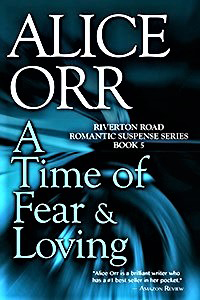Story Fodder
Since we are also savvy Authors, our glasses contain sparkling
water, diet cola, tonic with lime or something equally nonalcoholic. We know that
keeping the head clear is essential to keeping the perception sharp and the memory
intact for later notetaking. We are further aware that every foray into the world
holds the possibility for sighting a publishing pro, and we must be ever ready to
do some sober impressing. Like I said, we're savvy.
Meanwhile, a fellow partier sidles over to you, but is unfortunately
anything but a publishing professional. In fact, this guy or gal is a civilian,
as in not a publishing person at all, and especially not an Author. Soon he or she
discovers that you however are the real thing, an actual bona fide Author in the
flesh. At which point, your new-found companion from the non-pub world suggests
some variation on the following.
"I've got a terrific idea for a novel. Bestseller for sure.
How's about I tell you my idea, you write the story, then we split the take fifty-fifty?"
More than one misconception is in play here. First off, this
non-practitioner of the writing arts completely underestimates the writing process.
Legendary sportswriter Red Smith once famously said, "There's nothing to writing.
All you do is sit down at the typewriter and open a vein." Of course, your
sidekick with the bestseller idea, who has now glommed onto you like an overboard
sailor in search of port in a storm, knows nothing about the bloodletting aspect
of a writer's work. Worse yet, he does not understand that an idea is not a story.
An idea is only a kernel. That kernel may possess the potential
to grow into the next Nora King Mary Higgins Grisham opus, or it may not. Either
way, tons of nurture, strain, frustration, doubt and, ah yes, bloodletting must
be applied between the planting of that seed kernel and its sometimes quite long-distant
future harvest. A clever idea may be a jumping off place, but, without the sweat
equity required, the storyteller is in for a hard fall and a lean crop.
Let me make very clear that not only non-writers are susceptible
here. I have myself experienced the exhilaration of a Technicolor idea strike. Here's
how that phenomenon generally goes. A story concept, or maybe just the flash of
a scene, appears unexpectedly out of the blue, like lightning in the mind. And,
in that instant, I am immediately certain something entirely new and previously
unimagined has been revealed.
"This is it," I cry out in creative ecstasy between
heart palpitations. "This is the story I have to write."
The problem is that I don't really have a story. I only have
an idea, and an idea is only a beginning. A story, particularly in the commercial
publishing arena where so many of us practice our craft, requires a plot with a
beginning, a middle and an end. At best, my dazzling epiphany of inspiration will
get me through the opening scene, maybe even the first chapter. Sadly, on the other
hand, without a lot more work, the story tumbles downhill from there.
Any editor worth her blue pencil will see straight through the
Technicolor bit to the lackluster follow-up. Even if she is impressed by the story's
start, she'll have figured out the truth long before the probably nonexistent finish.
Which did, in fact, happen to me with the proposal for a suspense novel tentatively
titled Live Burial. I must admit I was as blindingly dazzled by that title inspiration
as I had been by the initial idea strike. Until my then-agent leveled her critique
straight at me.
"Sorry, Alice," she said, and she actually did look
sorrowful. "You've got no second act."
My own twenty-twenty hindsight eventually leveled its critique
as well. I had no subsequent acts at all, only a wham-bam opening scene. What had
been buried alive, by me, was my story, along with my chances of making that all-important
boffo first-read impression on my agent. The object lesson here is this. Follow
my advice, not my example. Tell your partytime buddy, "Thanks, but no thanks,"
and never let The Wrong Idea about Ideas enter your storyteller's mind ever again.
For more insights into writing and publishing, visit my blog
at www.aliceorrbooks.com.
Alice Orr is author of 16 novels, 3 novellas, a memoir
and No More Rejections: 50 Secrets to Writing a Manuscript that Sells. A former
book editor and literary agent, Alice now writes full-time. Her latest novel is
A Time of Fear and Loving – Riverton Road Romantic Suspense Series Book 5. Find
all of Alice Orr's books at amazon.com and other online retailers. Alice has two
grown children and two perfect grandchildren and lives with her beloved husband
Jonathan in New York City.
Author Website www.aliceorrbooks.com
Author Blog www.aliceorrbooks.com
Facebook https://www.facebook.com/aliceorrwriter
Twitter https://twitter.com/aliceorrbooks
Amazon Author Page https://www.amazon.com/Alice-Orr/e/B000APC22E









